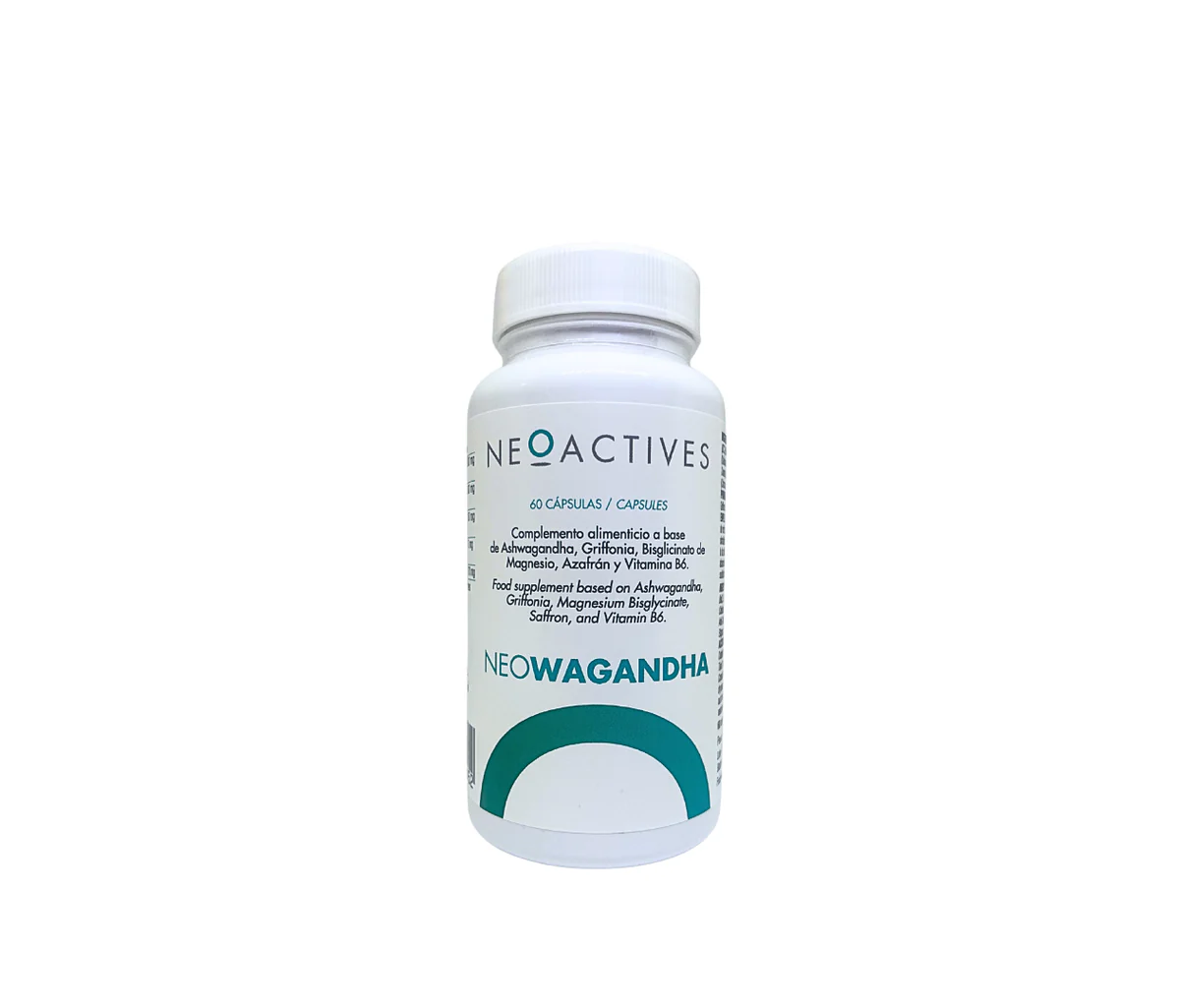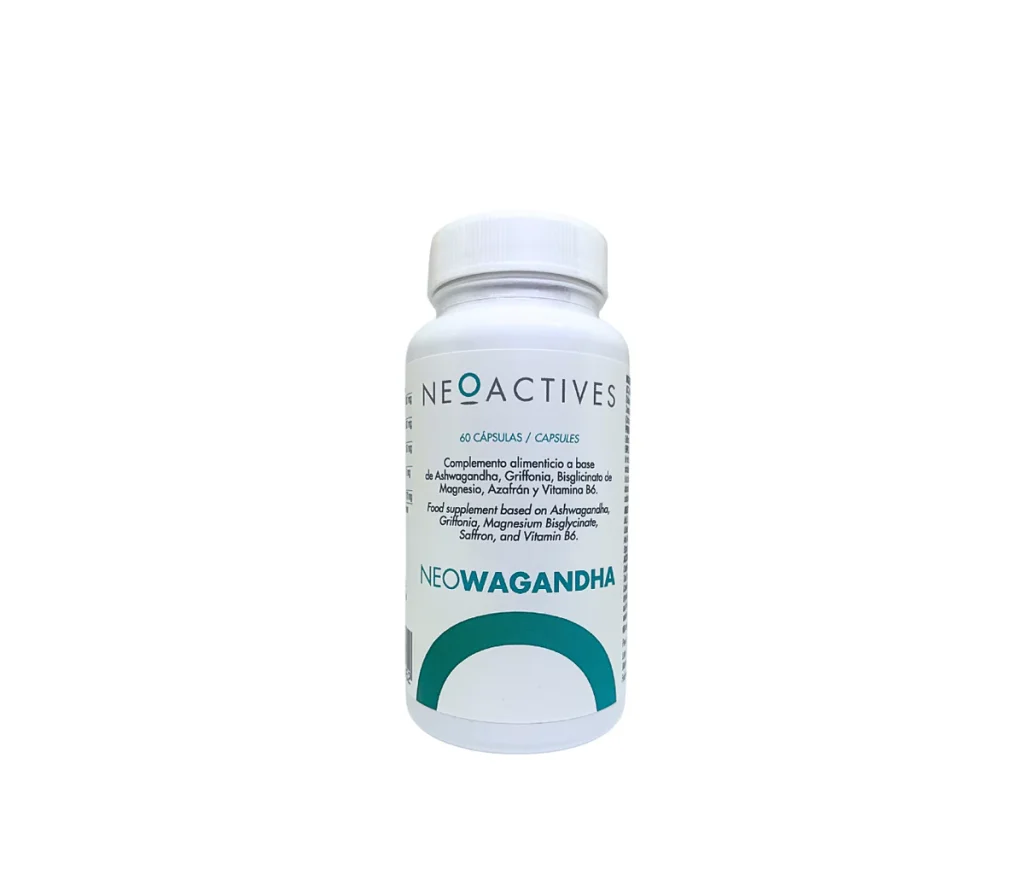Ashwagandha (Withania somnifera) is one of the most widely studied adaptogens in modern biomedical literature. Traditionally used in Ayurvedic medicine, its pharmacological profile has been extensively investigated over the past decade.
Ashwagandha acts as a neuroendocrine modulator. It helps to “re-educate” the Hypothalamic-Pituitary-Adrenal (HPA) axis, normalizing cortisol production and reducing disproportionate sympathetic activation.
Dr. Alfonso Galán – Neolife Medical Team
Why is chronic stress such a relevant issue today?
At Neolife, we increasingly observe a common pattern: patients who appear healthy but present symptoms related to persistent stress, poor nighttime rest, daytime fatigue, non-pathological anxiety, or low mood. Neuroinflammation, dysfunction of the HPA axis, sympathetic hyperactivity, and circadian rhythm disruption are common mechanisms underlying these symptoms.
Chronic stress continuously activates the HPA axis and leads to dysregulation of cortisol production. This can result in:
- Initial states of hypercortisolism followed by relative adrenal exhaustion.
- Sleep disorders and maintenance insomnia.
- Anticipatory anxiety and adjustment disorders.
- Functional immunosuppression.
- Thyroid imbalances (due to cortisol interference with T4-to-T3 conversion).
- Metabolic and appetite disturbances.

This is not just about “feeling stressed.” It is a real pathophysiological cascade that compromises both physical and mental health.
Ashwagandha: an adaptogen with solid scientific evidence
Ashwagandha Ashwagandha (Withania somnifera) is one of the most widely studied adaptogens in modern biomedical literature. Traditionally used in Ayurvedic medicine, its pharmacological profile has been extensively investigated over the past decade.
The most relevant and clinically demonstrated effects of ashwagandha include:
- Stress and cortisol reduction: a meta-analysis of 12 controlled clinical trials found that supplementation with ashwagandha significantly reduced serum cortisol levels in patients with chronic stress (Lopresti et al., 2022).
- Improved sleep: in a recent double-blind trial (Langade et al., 2019), ashwagandha significantly improved sleep quality (assessed by PSQI) and reduced sleep onset latency, even in people with mild to moderate insomnia.
- Mood improvement and anxiety reduction: several controlled studies have shown that ashwagandha supplementation can reduce anxiety scores (assessed by scales such as HARS or DASS-21) by 30–40% after 8 weeks, with effects similar to or greater than first-line anxiolytics—without their side effects.
- HPA axis regulation: ashwagandha acts as a neuroendocrine modulator. It helps to “re-educate” the HPA axis, normalizing cortisol production—both in hypercortisolism and in functional hypocortisolism—while reducing disproportionate sympathetic activation.
- Synergistic potential with melatonin and relaxing supplements: combined use with melatonin, GABA, L-theanine, saffron extracts, or passionflower has been shown to improve sleep quality, emotional well-being, and reduce dependency on hypnotics or antidepressants, often allowing for a controlled tapering.
Look for the Sensoril® extract
Sensoril® is a standardized, highly bioavailable extract of ashwagandha with an optimized withanolide concentration (≥10%) and strong support from clinical trials. Sensoril® combines root and leaf extracts, which differentiates it from other formulations focused only on the root (such as KSM-66®), providing greater antioxidant and anxiolytic potency.
Sensoril® has been shown to:
- Reduce cortisol by up to 24% in 60 days.
- Significantly improve energy and vitality.
- Decrease fatigue by 30–45%.
- Enhance cognitive performance and reduce distraction-related errors.
Who can benefit from the use of ashwagandha?
- Patients with mild to moderate anxiety.
- Sleep-onset or maintenance insomnia.
- Chronic occupational stress or burnout.
- Athletes with signs of adrenal fatigue.
- Mild reactive depression.
- Subclinical hypothyroidism with an inflammatory profile.
- Individuals tapering off anxiolytics/hypnotics.
Conclusion
Ashwagandha Ashwagandha represents an option with a solid scientific foundation to address one of the great health challenges of the 21st century: chronic stress and its multiple somatic and psycho-emotional manifestations that we see daily in clinical practice. Its efficacy in regulating the HPA axis, improving sleep quality, energy, and mood makes it an indispensable therapeutic tool in integrative health protocols such as those we develop at Neolife.
BIBLIOGRAPHY
(1) Lopresti AL, Smith SJ, Malvi H, Kodgule R. An investigation into the stress-relieving and pharmacological actions of an ashwagandha (Withania somnifera) extract: a randomized, double-blind, placebo-controlled study.
Medicine (Baltimore). 2019;98(37):e17186.
(2) Pratte MA, Nanavati KB, Young V, Morley CP. An alternative treatment for anxiety: a systematic review of human trial results with ashwagandha (Withania somnifera).
J Altern Complement Med. 2014;20(12):901-908.
(3) Langade D, Kanchi S, Salve J, Debnath K, Ambegaokar D. Clinical evaluation of the spermatogenic activity of the root extract of Ashwagandha (Withania somnifera) in oligospermic males: A pilot study.
Evid Based Complement Alternat Med. 2013;2013:571420.
(4) Chandrasekhar K, Kapoor J, Anishetty S. A prospective, randomized double-blind, placebo-controlled study of safety and efficacy of a high-concentration full-spectrum extract of ashwagandha root in reducing stress and anxiety in adults.
Indian J Psychol Med. 2012;34(3):255-262.
(5) Ng QX, Loke W, Venkatanarayanan N, Lim DY, Soh AY. A systematic review and meta-analysis of the clinical use of Withania somnifera (Ashwagandha) to improve sleep: current evidence and future directions.
J Ethnopharmacol. 2022;284:114787.

